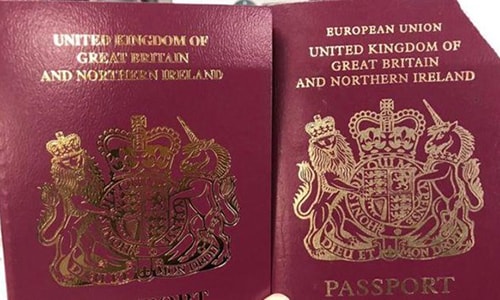Britain begins removing the word "European Union" from its passports
Some passports issued to British citizens from March 30 no longer have the words "European Union" even though Britain has not yet left the bloc.
|
Old British passport (right) and new passport issued after March 30, the original date the UK was scheduled to leave the European Union. Photo:Twitter. |
The UK Home Office has confirmed that some passports issued from March 30 will no longer have the words "European Union" (EU) in line with a decision made in 2017. However, the agency said some new travel documents will still have the EU's name to save money.
March 29 was originally set as the date for Britain to leave the EU, also known as Brexit. However, the process is being delayed after the British parliament repeatedly rejected the Brexit deal proposed by Prime Minister Theresa May. The EU has given Britain an extension to ratify the deal by April 12.
"We will continue to issue passports with the words 'European Union' for a short time after this date. Citizens will not be able to choose between passports with the words 'European Union' and passports without the words," the Interior Ministry said in a statement, stressing there was no difference between the two.
Meanwhile, some British citizens were shocked to receive their new passports because Britain has not actually left the EU. "I assumed I would still be issued with my old passport. Nothing serious but it is the first sign that we are leaving the EU," Susan Hindle Barone wrote on Twitter after receiving a new passport without the words "European Union".
The UK held a referendum in June 2016, with 52% of voters voting in favour of leaving the EU. The European Union in November 2018 accepted London's Withdrawal Agreement and Political Declaration on future EU-UK relations. The conflict between Prime Minister May and the British parliament is increasing the possibility of the UK leaving the EU without any agreement being passed.


